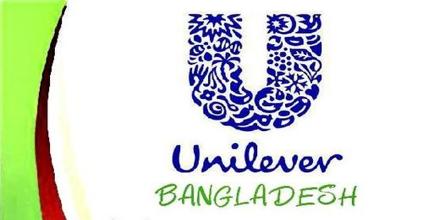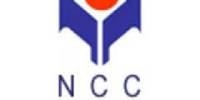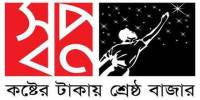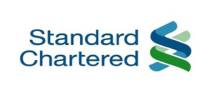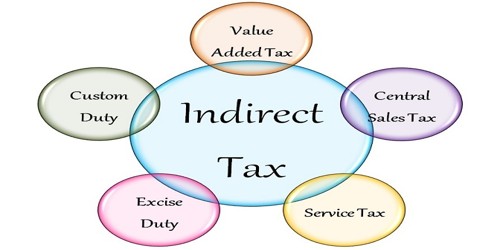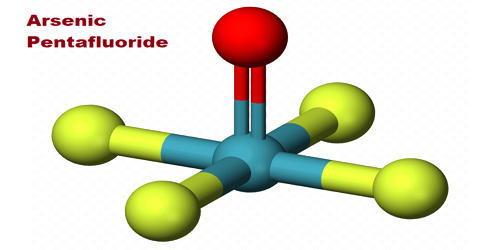Estimation of Consumer Perception of Fairness Creams of Young Generation
An Analysis on Unilever Bangladesh
Unilever is one of the largest FMCG Company in the world with Anglo-Dutch origins that go back to nearly a century. It is a company that started with the aim of helping people as they developed their very first product Sunlight Soap to improve hygiene. From then on, the company has been growing at rapid rate creating presence all over the world. It has its operations here in Bangladesh as well and is the largest FMCG Company of the country with 20 successful brands and is also one of the largest MNCs to be operating here.
This report provides an overview of Unilever Bangladesh Limited as a whole, its structure, strategies, USLP activities and different functional departments. This report has been prepared after thorough discussion with my line manager and using data exclusive to the company to provide an in-depth analysis of one of their major USLP project “TomarShopno Koro Shotti” under FAL Foundation. Furthermore, the scope of this report also includes a survey conducted specifically on the industry that I dealt with during my internship to allow me to use the knowledge I earned into analyzing the market. Working on this report has presented me with the opportunity to objectively look at information and create meaning out of them.
Unilever at a Glance
Unilever Bangladesh Limited is one of the biggest multinational currently operating in Bangladesh and is the leading company in the FMCG industry. UBL’s presence in Bangladesh began in 1964 when they established a soap factory in Kalurghat, Chittagong – a factory that still stands strong today. The company originally operated with the name of Lever Brothers Pakistan, but was declared independent after the liberation war. It later became Lever brothers Bangladesh which eventually evolved to its current name of Unilever Bangladesh in 2002. It is a joint venture company of Unilever PLC and the Govt. of Bangladesh with a share arrangement of 60.75% to Unilever and 39.25% to the Bangladesh Govt. UBL currently has 20 active brands in their portfolio in Bangladesh ranging across home care, personal care and foods. As of 2015, they are the market leader in 7 of the 8 categories they serve in. 90% of the local market is dominated by UBL, as at least one of their products is available across 98% of the households. As per latest statistics, in every minute the company sells over 21,000 products. From its corporate office at Gulshan – 1, UBL provides employment to over 10,000 people through suppliers, distributors and service providers.
Organizational Structure
Unilever global Chairman and CEO, Paul Polman leads the global business. Company leadership structure in Bangladesh comprises the Chairman and Managing Director followed by six functional Directors. The senior, mid-level and assistant managers serve under them.
Departments
UBL current comprises six functional departments. Each department has a Director. Their functions are explained briefly:
- Human Resource (HR) – The busiest of all departments. It looks after the people of the company, engages in campus activities, conducts recruitment and builds leadership.
- Customer Development (CD) – The department which looks after the trade and sales of the company. It ensures the accessibility and visibility of the products in the market.
- Customer Marketing – A wing of Customer Development. It creates the link between the Customer Development and Brand Building department.
- Brand Building – This department is looks after the various brands and ensures they remain competitive in the market.
- Finance Department – The department looking after all the financial activities of the company.
- Supply Chain – This department is responsible for sourcing and production of products. Its duty begins from material management to finally delivering products to the distribution houses so they are available to consumers.
Core values
Unilever maintains four core values at the base of all their company actions which is reflected in their USLP (described below). They are explained briefly:
- Integrity: the company believes this to be of utmost value and never compromises with honesty because it creates the company reputation and drives its long run success.
- Respect: Unilever is a diverse and multicultural work place with unique individuals from around the globe working together. Therefore, the company makes it a point that each of them maintains dignity, honesty and fairness towards their co-workers.
- Responsibility: Unilever always places the environment as one its foremost concerns before they take any decision and ensures taking sustainable course of actions, adding vitality to life. Unilever acts responsibly towards all its stakeholder including the consumers, suppliers, distributors and employees, as well as the environment and the communities in which it operates.
- Pioneering: Innovation stands at the heart of Unilever allowing them to excel in the marketplace. Examples include Unilever officially launching the first detergent powder (Wheel), the first deodorant (Rexona), and the first skin care cream (Fair & Lovely) since its inception in Bangladesh.
Unilever Sustainable Living Plan (USLP)
The motto of Unilever is “Doing Well by Doing Good”. This philosophy laid the foundations for the Unilever Sustainable Living Plan. Launched in 2010, the program was aimed at making sustainable living commonplace by developing business practices that enrich both the company and the community it serves. Unilever aims to fulfill the growing consumer demand through sustainable products and create a brighter future for everyone. USLP will help the company double the size of their business, increase their positive impact on society and reduce their environmental footprints by innovating greener solutions.
Unilever realized that it does not only sell brands: it sells a promise. USLP is not merely meant to be a competitive advantage to enhance the company’s image. It is a belief, a code of conduct that Unilever and its people live by. It is derived from the brands of Unilever and carried out by the people involved; something that kept the company much further ahead of its rivals.
By 2020, the USLP aims to achieve the following:
- Will help more than 1 billion people take action to improve their health and wellbeing.
- Will halve the environmental impact of the making and use of Unilever products.
- Will source 100% of agricultural raw materials sustainably.
By driving sustainability into every corner of their business, the Plan is opening up new opportunities and driving growth:
- More and more people are choosing brands with a social purpose, such as Dove and Lifebuoy.
- As consumers’ needs change, they are concentrating on innovations, such as laundry products that use less water.
- They are making their supply chain more secure by working with smallholder farmers to improve farming practices and livelihoods.
Brief Overview of Projects Assigned
Unilever has two distinct departments globally dealing with its brands – brand development and brand building. As the name suggests, the brand development part is responsible for coming with different brand names and ideas that fit the company and product profile.
However, in Unilever Bangladesh, we only have the Brand Building department which is tasked with enhancing the reach and image of the existing brands in Bangladesh. Each of the 20 brands that UBL has is dealt with in this department. At the head of this department sits
the brand building directors and there are different senior and junior brand managers who are each put in charge of one or several of these 20 brands. This is one of the most challenging department of this company as the brand managers need to brainstorm and come up with innovative yet effective ideas to take their brand to the number one spot. These managers works hard day and night to analyze the market data and to discover any lapses in their outreach. They develop ideas on how to better promote the brand they are in charge of and how to make it a dominating presence in the local market of our country. They have an activation wing operating under the same department that carries out the promotional campaigns and activations that are developed by the brand managers. These are aimed at not only raising the awareness level of the brands but also to ensure customer satisfaction by engaging them directly and enriching their lives in one way or the other.
The brand building team works closely with the customer development department which comprises of territory officers and managers scatter all over Bangladesh in different zones. The customer development team is tasked with the execution of ideas on a root level, ideas that brand managers develop in headquarters. The customer development team knows the local market well and is, therefore, ideal in carrying out these tasks. They also gather market data by conducting different surveys and then send this data to brands team who use this to effectively look at the market from a birds-eye view. They compare the data across different zones to determine which zones are successful and what strategies are responsible for that.
Projects Assigned
This campaign was originally carried out first in India by Hindustan Unilever to empower the women of their country and at the same time, promote fair and lovely as a brand that is concerned about the well-being and independence of women. After the success of the campaign in India, it was undertaken by Unilever Bangladesh. The campaign title in English would be “Make your dream come true” and that is exactly what it aimed to do. It had three distinct categories of aids for women – (a) Scholarship for struggling SSC/HSC/Bachelors students, (b) Vocational Training for job seeking women and (c) Start-up capital for women entrepreneurs. Fair and Lovely launched an ad campaign called “Haar Na ManaNari” in early 2015 which acted as the take-off platform for “TomarShopno Koro Shotti”.
While this campaign was running, Fair and Lovely started collecting applications from women all over Bangladesh who sought to participate in the campaign TomarShopno Koro Shotti and receive aid in any of the three pillars – education, career, entrepreneurship. They could apply by calling the Unilever careline and requesting a form or by going to the website, downloading the form and mailing it back to Unilever careline.
Bizmaestros 2015
Bizmaestros is a fairly renowned annual business case competition hosted by Unilever Bangladesh. This competitions calls for the top final year students from the best universities of Bangladesh to participate in groups of three. The winning team gets internship privilege in Unilever and also gets to participate in the global round of this competition known as Future Leaders League whereby winning teams from many different countries around the world come together in a showdown of grit and creativity. The winning team of Bizmaestros 2014 went to become the runners up of Future Leaders League last year – a great accomplishment, which led UBL to make Bizmaestros this year tougher and grander to exceed the performance of the previous year. The team gets an all-expense paid trip from the UBL.
The competition kicks off with the road show round where the UBL team visits different university campus sites and talks about this competition in detail to create awareness. They hold a seminar where AVs of previous years’ competitions are shown and the experience of previous participants are shared to encourage new ones. The interns played a significant role to make these road shows happen from brainstorming AV ideas to preparing PowerPoint slides and assisting agencies to set up the campus and managing all attending students in each university. Then came the briefing round where more than 450 students chosen from different universities attended and they were informed about the tasks their teams needed to complete in order to move to round 2. They were also given an example of the activation task as Lifebuoy was executing a hand wash related activation campaign in the next hall and we coordinated 450 students to move in a line and attend the Lifebuoy activation campaign to gain some experience and idea. Lastly, the semi-final and final round of the event took place in a daylong event at Radisson Blu Water Garden. We were in charge of coordinating the sound team, the AV team, seeing if all the finalists were seated in their designated positions, maintain a steady sequence of different segments in the event, see to the judges’ needs etc.
Working in this event taught me valuable lessons in organizing and managing people as I dealt with different people from agencies, people from the venue and university and finally all those students. It instilled a sense of first-hand leadership that will continue to aid me further in my life.
Literature Review
According to a research carried out by the students of Punjabi University on the Indian market, they determined that 36% of all respondents preferred Fair & Lovely as their brand of fairness cream which was the highest compared to other brands. However, this survey was conducted on women specifically which might be an influencing factor behind the high preference towards fair & lovely as a brand. The same survey also showed using empirical data that the two factors that women strongly considered before purchasing a fairness cream was the brand itself and the ability of the product to cause fairness of skin. These two factors accounted for 68% of all respondents. Another important finding from this research paper shows that 46.7% of all respondents stated television ads to be the biggest source of awareness about fairness cream brands and their value propositions.
Survey Analysis, Interpretation and Findings
This section covers the findings from the survey conducted on “Analysis of Consumption Perception of Fairness Creams of Youth in Dhaka”. The survey was conducted using an online website called SurveyPlanet.com. The online form was shared with people of different age groups although the majority of them were undergraduate level students. A total of 76 survey responses were collected from different individuals. The collected data was then analyzed using pie charts and bar charts to represent them in a more meaningful way. After thorough analysis of the data, it was interpreted in terms of what the research amounted to and what were the final findings of the research. To add to the credibility of the report, a thorough literature review was conducted on the fairness cream industry to take account of previous research findings and compare it with the findings from this particular research.
Overall Findings
After having completed a thorough analysis of the survey and comparing the findings with the literature review that majorly described the condition of the industry in India, we can determine that the findings are similar to a large degree due to the similarity of the weather and climate of the two countries and also due to the similarities in the demographics of the respondents. The people of Bangladesh are strongly brand conscious towards fairness creams and consider it a primary factor when choosing a cream to buy from the market. Furthermore, this survey also states that perks such age-reduction, fairness amount to another important decisional factor for choosing fairness cream brands. This also holds true in the Indian market as per the literature review. 43% of the respondents being classified as male indicates that there is a growing customer base of male fairness cream users here in Bangladesh as well.
The source of awareness of these products is majorly television ads in both countries, however, in India, its significance is higher. A possible explanation for that is India has a lot more channels broadcasting a wide genre of programs that appeal to different customer groups and as a result, they are more exposed to TV commercials. Furthermore, Fair & Lovely has undertaken more persistent marketing efforts in India as opposed to their campaigns in Bangladesh. Having grown into the largest fairness cream brand in India by market share, their attention has now moved towards achieving the same in Bangladesh and thus, the new commercials are aimed at changing the perception of consumers towards this brand as something that is more than just about making women fair. They are trying to portray a brand image where Fair & Lovely cares about the women who use it, about their independence and about them making them strong individuals. As a result, Fair & Lovely has been experiencing growing market share in Bangladesh with a dominant position in the rural areas which was not revealed in this survey due to limitations of the number of respondents.
This change in brand promotion strategy for Fair & Lovely was a much needed one for UBL as Fair & Lovely has been criticized in the past for its portrayal of dark-toned women in society in commercials. According to Karani (2007), two Fair & Lovely ads have been banned by the Indian government on account that it sent discriminatory message to the viewers. In conclusion, this survey has proven to be an effective tool in providing insight into the current market situation and consumer perception of fairness creams in Bangladesh.
Learning’s and Conclusion
To summarize, my three month period in Unilever has been a spectacular journey of personal growth, learning and overcoming challenges. I entered this company as a graduate student and came out in the end as a well-groomed professional. I learned how to communicate with fellow colleagues as a professional, how to tackle problems from a business perspective and I learned how to deal with stress and meet deadlines. There were often times I had to juggle three to four different tasks at a time and they always needed to be completed on time. This provided me with the scope to get creative and find solutions on how to deal the tasks in the most effective manner. I worked extensively on MS Excel regarding data entry and data management while dealing with the information of 1000 applicants and their respective score sheets. This allowed me to grasp the importance of MS Excel in an organizational setting and has led me to believe that universities should offer more extensive courses about teaching excel skills to its graduates to increase their competency. Working on PowerPoint to prepare presentations for my seniors in Unilever also gave me the chance to improve my presentation skills and equipped me with the very important skill of developing standard quality slides within a very short time. Furthermore, I also developed the ability to type Bengali on MS Word due to situational need which has boosted my skills portfolio. There were times when I was also given the chance to assume the role of a leader when managing the particular events in different regions and this allowed me to learn about leadership skills in a way that I never could by reading from books. Negotiation, management, leadership, communication, problem solving are some of the important lessons that I took with me from my internship. I learned that successful organizations are extremely goal oriented and self-driven and those are traits that I want to incorporate in my personal life as well to build myself into a successful human being and a successful corporate. Working in Unilever and getting the chance to interact with different companies, agencies and individuals has also helped me create a better vision for my career path. I learned that there is a lot to look for in a job besides salary and that you need to enjoy your work.
